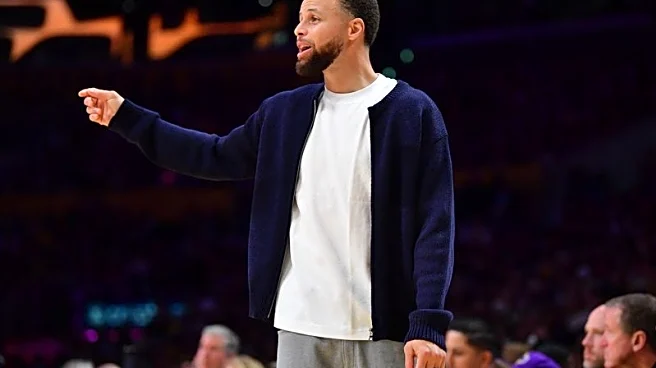What's Happening?
Amazon is set to end its Prime Invitee benefit-sharing program on October 1, transitioning to a new model called Amazon Family. This change will restrict Prime benefits to individuals living in the same household, specifically up to two adults and four children at a single primary residential address. The move comes as Amazon seeks to boost its Prime account signups, which have recently slowed despite high sales during the extended July Prime Day event. The Prime Invitee program allowed users to share benefits like free shipping with friends and family outside their household, a practice Amazon is now curtailing. The new Amazon Family program will continue to offer benefits such as free shipping, Prime Video, Prime Reading, and Amazon Music, but only within the same household. This shift mirrors similar actions taken by other companies like Netflix and Disney-Plus, which have also cracked down on account sharing.
Why It's Important?
The decision to end the Prime Invitee program and introduce Amazon Family is significant for both consumers and Amazon's business strategy. For consumers, this change means that those who previously benefited from shared Prime accounts will need to purchase their own subscriptions, potentially increasing their monthly expenses. For Amazon, this move is aimed at increasing the number of individual Prime accounts, thereby boosting subscription revenue. The change reflects a broader industry trend where companies are tightening account-sharing policies to maximize profits. This could lead to increased competition among streaming and subscription services as consumers weigh the cost of individual subscriptions against shared benefits. Additionally, Amazon's strategy may influence other companies to adopt similar policies, impacting consumer behavior and subscription models across various industries.
What's Next?
As Amazon implements these changes, consumers will need to decide whether to subscribe individually to maintain access to Prime benefits. The company may see an initial increase in subscriptions as users adjust to the new policy. However, there could be backlash from consumers who are unhappy with the loss of shared benefits, potentially affecting customer satisfaction and loyalty. Amazon will likely monitor the impact of this change on subscription numbers and may adjust its strategy based on consumer response. Other companies in the subscription space may also watch Amazon's approach closely, considering similar changes to their own account-sharing policies.










